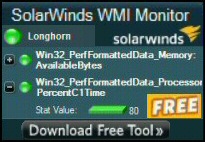Get your Copy of PowerShell Installed
One of my themes with Windows PowerShell is that nothing is too simple. Therefore, let me start by checking that you have downloaded and installed the correct PowerShell files. If indeed, you have PowerShell installed and functioning correctly then go to my ‘Execute Commands’ page.
PowerShell Downloads
It breaks my heart to send you away from my site, but if you have Vista then it is essential that you get a copy of PowerShell and .NET Framework from Microsoft’s own site.
PowerShell itself
PowerShell has moved forward from a download, to merely ticking a box in the Control Panel, Programs, and then 'Turn Windows feature on'.
Key point, for these old systems you need to download an operating specific version of PowerShell:
- Vista
- Windows Server 2003
- XP
Download PowerShell from Microsoft’s site
.NET Framework
PowerShell is an object based scripting language, consequently, it needs .NET Framework for the definitions of the Windows objects. PowerShell works fine with either .Net Framework v 2.0, or v 3.0.
Microsoft .NET Framework 2.0 Redistributable Package (x86)
Microsoft .NET Framework 3.0 Redistributable Package
PowerShell Installation
Here are the three stages before you get up and running with PowerShell:
- Obtain, then install .Net Framework 2.0
- Get a copy of PowerShell, for example v1.0 (2.0 in 2008)
- Start, Run, PowerShell.

Once you have installed PowerShell (and .Net), try this simple command:
$Host
Here opposite is a screen shot of what you should see: Version 1.x.x.x
As usual, there are two ways of doing everything, you could try.
Get-Host
Guy Recommends: Free WMI Monitor for PowerShell
Windows Management Instrumentation (WMI) is one of the hidden treasures of Microsoft’s operating systems. Fortunately, SolarWinds have created a Free WMI Monitor so that you can discover these gems of performance information, and thus improve your PowerShell scripts.
Take the guess work out of which WMI counters to use when scripting the operating system, Active Directory, or Exchange Server. Give this WMI monitor a try – it’s free.
Download your free copy of WMI Monitor
The Situation with PowerShell and the Operating System
Previous scripting programs came ‘built-in’ to the operating system. DOS has its cmd.exe, while VBScript has cscript.exe as its scripting engine. As of 2007, no commercial operating system, not even Vista, has PowerShell ‘built-in’. Fortunately, installation is one of Microsoft’s strengths, thus obtaining both PowerShell and .Net Framework is an uncomplicated one-off task.
PowerShell Runs on these systems: Windows Server 2003, Windows XP and even Windows Vista, however each has their own version of PowerShell.
Getting Started – PowerShell’s Structure
The basic PowerShell command consists of a two-word sentence. Start with a verb follow with a dash and end with a noun. Naturally, you press carriage return when you have finished the command.
Get-Process (Correct).
get – process (Wrong. The dash needs no space).
With time and practice, you will soon increase your vocabulary. Experiment with nouns such as Eventlog. For example:
Get-Eventlog -List.
From this example we learn that the dash or minus sign has another role, namely as a modifier or switch, thus the role of a space, or a lack of a space, becomes more obvious, for example -List tells the command to display all the event logs.
Perhaps the most useful command for beginners is: Get-Help followed by the command. For example:
Get-Help process
or
Get-Help Get-Process
or better:
Get-Help Get-Process -full
Alternatively, you could try plain: help. From this we deduce that the default verb is ‘get’. Test this theory by typing just a noun that PowerShell understands:
Process
help
eventlog
If you like this page then please share it with your friends
See more Microsoft PowerShell tutorials
• PowerShell Tutorials • Methods • Cmdlets • PS Snapin • Profile.ps1 • Exchange 2007
• Command & Expression Mode • PowerShell pipeline (|) • PowerShell ‘where‘ • PowerShell ‘Sort’
• Windows PowerShell Modules • Import-Module • PowerShell Module Directory
If you see an error of any kind, do let me know. Please report any factual mistakes, grammatical errors or broken links.

